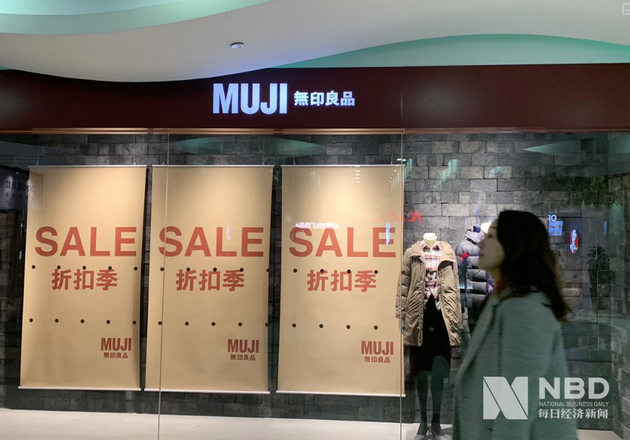Dec. 12 (NBD) -- Japanese retail firm MUJI has lost the trademark case against a Beijing-based firm, and was ordered to pay a compensation of around 626,000 yuan (89,107 U.S. dollars) to the Chinese company.
Also, the Japanese retailer was ruled to publish an announcement on the trademark issue at its online and brick-and-mortar stores in mainland China.
According to the final judgment made by the Beijing Municipal High People's Court, MUJI's parent company Ryohin Keikaku Co., Ltd. and its Shanghai unit constituted trademark infringement for selling Class 24 products in mainland China under the Chinese trademark name "Wuyinliangpin (无印良品)" that is owned by Beijing Cottonfield Textile Corp. The Class 24 contains textile goods such as towel, cotton fabrics, blanket, sheet, pillowcase and quilt cover.

Photo/Zhang Xiaoyin (NBD)
At its official shop on the e-commerce marketplace Tmall, MUJI has issued a statement saying that MUJI improperly used the name "Wuyinliangpin" for Class 24 products in 2014 and 2015, and it has already changed the labels for those goods.
Since November 1999, years before its entry into the Chinese market in 2005, MUJI had registered a series of trademarks for most of its goods and services in the country, but products in Class 24 were not covered.
In early April of 2001, Hainan Nanhua gained approval for registration of the "Wuyinliangpin" trademark for products including bed covers and towels and cloth in China. The company transferred the rights to the trademarked name to Beijing Cottonfield three years later.
Ryohin Keikaku has initiated lawsuits since 2001 seeking to retrieve the Chinese trademark for Class 24 products but ended up with failure. Later in 2015, the Japanese firm and its Shanghai unit faced a countersuit filed by Beijing Cottonfield and one of its subsidiaries for trademark violations.
After losing the case in December 2017, Ryohin Keikaku appealed to the higher court the next year. In the recent announcement, the Beijing Municipal High People's Court upheld the previous judgment.
National Business Daily noted that this is not the first time for MUJI to be involved in trademark disputes.
A Hong Kong-based firm registered the trademark name "Wuyinliangpin" in Chinese characters and "MUJI" in English for Class 25 products in 1995, four years earlier than MUJI's applications for the trademarks. MUJI finally got the trademarks after a six-year battle against the Hong Kong company.
It is noted that China plays crucial role for MUJI's overseas business expansion. MUJI currently operates 265 stores in mainland China, about half of the total number of MUJI's overseas shops, and 18 new openings are planned for the mainland by February 2020.
The latest financial results from Ryohin Keikaku revealed the company posted a 16.8 percent year-on-year increase for operation revenue in China's mainland in the second quarter of fiscal 2019 ended on August 31, 2019, higher than the quarterly growth for the previous four quarters.
Email: lansuying@nbd.com.cn


 川公网安备 51019002001991号
川公网安备 51019002001991号





